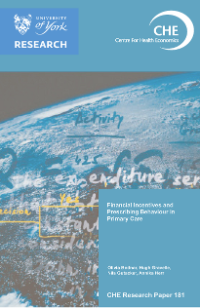Financial incentives and prescribing behaviour in primary care
Posted on Tuesday 20 April 2021

Many healthcare systems prohibit primary care physicians from dispensing the drugs they prescribe due to concerns that this encourages excessive, ineffective or unnecessarily costly prescribing. Using data from the English National Health Service for 2011 to 2018, we estimate the impact of physician dispensing rights on prescribing behaviour at the extensive margin (comparing practices that dispense and those that do not) and the intensive margin (comparing practices with different proportions of patients to whom they dispense). Our empirical strategy controls for practices selecting into dispensing based on observable (OLS, entropy balancing) and unobservable practice characteristics (2SLS). We show that physician dispensing raises drug costs per patient by 4.2%, which reflects more and more expensive drugs being prescribed, including potentially inappropriate substances such as opioids. Dispensing practices also prescribe smaller packages as reimbursement is partly based on a fixed fee per prescription dispensed. Similar effects are observed at the intensive margin.
Full Report: CHE Research Paper 181 (PDF ![]() , 1,233kb)
, 1,233kb)
Other papers in the CHE Research paper series can be found at: CHE Research Papers
